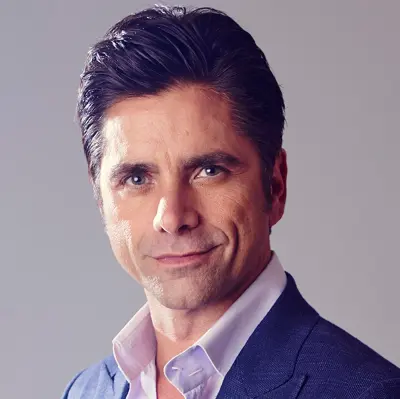It's time to acknowledge John Stamos as one of TV's most underrated actors
-

"I have come to understand that I have a thing for John Stamos," says Robert Lloyd. "Not a Tiger Beat, 16 magazine thing, with pinups on the inside of my locker door. I didn’t grow up on Full House, being already grown when it debuted in 1987 and introduced the world to Uncle Jesse. I didn’t follow him in his pretty boy prime but became a fan in his actual prime — adult, though still boyish; less pretty, still pretty darn pretty — when he began to play grown men whose combination of charm, looks and talent had gotten them far in the world but may have also slowed their emotional growth. Mature, but still maturing. I’m not saying that everything Stamos touches is gold, and his presence is certainly no guarantee of a show running even a full season (Dreams, Thieves), though he has never enjoyed the reputation of a show-killer. Still, I am more inclined to give something a chance when I notice he’s in it. I find his company pleasurable and invigorating, his acting natural but, when you stop to notice, artful. And his current series, the Disney+ teen comedy Big Shot, in which he plays a disgraced men’s college basketball coach 'reduced' to (though of course elevated by) coaching high school girls, is a perfect vehicle for his particular gifts, and for a well-maintained 57-year-old actor in the fourth decade of his career...Stamos is somewhere in the middle, not playing himself but always a little bit himself. Even when he is cast against type it only underscores that he has a type. But he’s not without range or a useful dark streak; early on, attempting to demonstrate there was more to him than Uncle Jesse, he played a pimp in the TV movie Daughter of the Streets and a serial killer in Fatal Vows: The Alexandra O’Hara Story, though generally speaking his characters, as the Shangri-Las sang, are 'good-bad, but not evil.' (He can be devilish, but not demonic.)" Lloyd adds that Stamos "doesn’t hit false notes, make scenes drag or steal another actor’s light. That he can seem less self-absorbed than the characters he plays is part of what makes them appealing; we can see that better self, waiting to be revealed. And if he never seems out of his depth, it may just be that he doesn’t overact; he doesn’t get too far out over his center of gravity. He puts me in mind of James Cagney’s well-known remark about acting: 'You walk in, plant yourself, look the other fella in the eye, and tell the truth.'"
TOPICS: John Stamos, Big Shot, Full House
More John Stamos on Primetimer:- Did John Stamos say he’d leave his wife Caitlin for Lori Loughlin? Here’s what he revealed during “Good Guys” podcast
- Hey, You: Remembering Joe’s Most Heinous Acts of Violence and Jealousy
- John Stamos Says He Probably Won't Do a Full House Reboot Without Bob Saget: 'There's a Piece Missing'
- Tony Awards Under Fire For Bob Saget In Memoriam Snub
